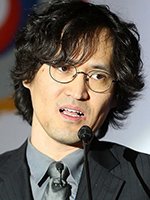This paper examines the process through which the Korean TVET system has been moving toward a decentralized skills development system, and explains what roles major stakeholders have played in this transition. Special attention is given to the roles played by the central government, which for the last few decades has been in charge of administration and delivery of TVET programs across the nation. The Korean TVET system, inclusive of technical vocational education and vocational training, has been widely appreciated for its great achievements in terms of effectiveness and efficiency by the international community. However, recent developments of technological innovation and employment strain have put great pressure on the long-established system, setting the scene for the reform of its governance.


